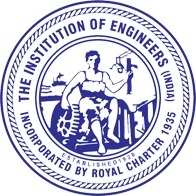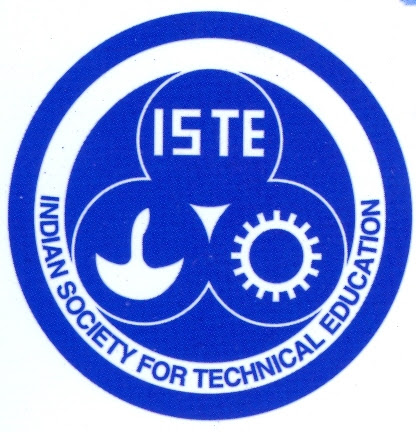B.Tech Artificial Intelligence and Data Science in Chennai | J.N.N Institute of Engineering
- About
- Vision-Mission
- Laboratories
- Memberships
- Value Added Courses
- PEO/PSO/PO
- Curriculum & Syllabus
- Admission & Fees
- Faculty
- MOUs
- Certificate Courses
- Internships
- FAQ
Artificial Intelligence is the branch of Computer Science concerned with making computers behave like humans!
Duration of Program 4 Years (8 Semesters)
Seats: 60
The B.Tech program in Artificial Intelligence and Data Science at J.N.N Institute of Engineering combines cutting-edge curriculum in AI, machine learning and data analysis with practical, hands-on training. Located near Chennai, this program leverages state-of-the-art facilities and a lush green campus to offer a conducive learning environment. Accredited by the AICTE and affiliated with Anna University, the program aims to develop skilled professionals who are ready to tackle the challenges of the evolving tech landscape.
Key Features :
- Strategic Location: Accessible from Chennai with frequent bus services.
- Modern Infrastructure: Equipped with the latest technology and laboratories.
- Expert Faculty: Experienced educators and industry experts.
- Industry Collaboration: Strong links with leading tech companies ensuring relevant industry exposure.
Best AI and Data Science Course in Chennai
Artificial Intelligence (AI) and Data Science (DS) are shaping the future of technology and innovation. The B.Tech in Artificial Intelligence and Data Science at J.N.N Institute of Engineering is designed to equip students with technical expertise, analytical skills, and industry experience. Our program is one of the best AI courses in Chennai, offering a blend of machine learning, deep learning, big data analytics, and cloud computing. With hands-on training and industry collaborations, students graduate as future-ready AI professionals.
Why Choose a B.Tech in Artificial Intelligence and Data Science?
1. AI and Data Science Course in Chennai with Industry Exposure
AI and Data Science have become the backbone of modern industries, revolutionizing domains such as healthcare, finance, manufacturing, and e-commerce. With increasing demand for AI professionals, pursuing an Artificial Intelligence course in Chennai ensures a lucrative career with global opportunities.
2. State-of-the-Art Infrastructure for AI and Data Science Training
Our AICTE-approved institute is equipped with advanced AI labs, high-performance computing systems, and industry-grade data science tools. Students engage in real-time projects, hackathons, and AI research that enhance their practical learning experience.
3. Learn from Expert Faculty and Industry Leaders
Our faculty includes highly experienced professors, AI researchers, and industry experts. With their mentorship, students gain deep insights into artificial intelligence, machine learning algorithms, and big data technologies.
4. Industry Collaboration for AI and Data Science Internships
We collaborate with leading tech companies, AI startups, and multinational corporations to provide students with internships, live projects, and industry exposure. Our tie-ups with AI firms ensure students receive hands-on training on real-world AI applications.
5. High Demand for AI and Data Science Professionals
With the rise of AI-driven applications, there is a huge demand for AI engineers, data scientists, and AI specialists. Graduates from our AI and Data Science program secure high-paying jobs in top MNCs and tech startups.
Why J.N.N Institute of Engineering for AI and Data Science?
1. AI and Data Science Course with Placement Assistance
We have a dedicated placement cell that ensures students secure jobs in top AI firms. Our alumni work in Google, Microsoft, Amazon, TCS, Infosys, and top AI startups.
2. Research and Innovation in AI and Data Science
Students engage in AI research projects, hackathons, and innovation labs to explore the latest trends in artificial intelligence.
3. Learning Beyond Classrooms with AI Workshops and Seminars
We organize guest lectures, AI boot camps, and data science seminars with industry leaders to provide exposure to real-world AI applications.
4. A Green Campus with a Conducive Learning Environment
Located near Chennai, our campus provides modern classrooms, advanced AI labs, and a peaceful atmosphere for learning.
FAQ
1. What is the duration of the B.Tech Artificial Intelligence and Data Science program?
The B.Tech AI and Data Science program is a 4-year (8-semester) undergraduate degree focusing on artificial intelligence with data science, machine learning, and analytics.
2. How many seats are available for the AI and Data Science course?
The program has 60 seats per batch.
3. Is the B.Tech in Artificial Intelligence and Data Science course accredited?
Yes, this B.Tech Artificial Intelligence and Data Science program is AICTE-approved and affiliated with Anna University, Chennai.
4. What are the eligibility criteria for admission to the AI course in Chennai?
To apply for this AI course in Chennai, students must have completed 10+2 with Physics, Chemistry, and Mathematics (PCM) and qualify through Anna University counseling or the management quota.
5. What career opportunities are available after completing this AI and Data Science course?
Graduates of B.Tech Artificial Intelligence and Data Science can work in various industries as:
– AI Engineer – Develop AI-based applications and systems.
– Data Scientist – Analyze large datasets and extract insights.
– Machine Learning Engineer – Design machine learning algorithms.
– Business Analyst – Utilize AI-driven insights for decision-making.
– AI Consultant – Help companies integrate AI and Data Science solutions.
6. Why should I choose this Artificial Intelligence course in Chennai?
Our B.Tech AI course in Chennai offers:
– Industry-relevant curriculum designed for real-world AI applications.
– State-of-the-art AI labs and infrastructure with hands-on training.
– Expert faculty with AI and machine learning experience.
– Placement support with top tech companies.
7. What subjects are covered in the B.Tech AI and Data Science syllabus?
Key subjects in this b tech artificial intelligence and data science program include:
– Artificial Intelligence and Machine Learning
– Deep Learning and Neural Networks
– Big Data Analytics
– Cloud Computing for AI
– Computer Vision and NLP
8. Does this AI and Data Science course include internships and real-time projects?
Yes! This B.Tech in Artificial Intelligence course includes internships, real-time projects, AI research opportunities, and collaborations with tech companies.
9. What is the admission process for the Artificial Intelligence course in Chennai?
The admission process for this B.Tech Artificial Intelligence and Data Science course includes:
1. Filling out the online application form.
2. Meeting the eligibility criteria.
3. Attending Anna University counseling or direct admission through management quota.
4. Securing admission by completing the enrollment process.
10. What are the job roles available after completing this AI course in Chennai?
Graduates of b tech artificial intelligence can apply for roles such as:
– AI Engineer
– Data Scientist
– Machine Learning Engineer
– AI Researcher
– Big Data Analyst
– AI Consultant
Vision:
To impart quality-education, inculcate professionalism and enhance the problem-solving skills of the students in the domain of Artificial Intelligence & Data Science by applying recent technological tools and incorporating collaborative principles with a focus to make them industry ready.
Mission:
– To enhance the knowledge of the students with most recent advancements and refresh their insights in the field of Artificial Intelligence and Data Science.
– To equip the students with strong fundamental concepts, analytical capability, programming and problem-solving skills.
– To make the students industry ready and to enhance their employability through training, internships and real-time projects.
– To guide the students to perform research on Artificial Intelligence and Data Science, with the aim to provide solutions to the problems of the industry.
SEMESTER | SUB.CODE | LABORATORY NAME |
I | GE8161 | Problem Solving and Python Programming Lab |
II | AD8261 | Data Structures Design Lab |
III | AD8311 | Data Science Laboratory |
III | CS8383 | Object Oriented Programming Laboratory |
IV | AD8411 | Database Design and Management Laboratory |
IV | AD8412 | Data Analytics Laboratory |
IV | AD8413 | Artificial Intelligence – I Laboratory |
V | AD8511 | Machine Learning Lab |
V | AD8512 | Mini Project on Data Sciences |
V | IT8511 | Web Technology Lab |
VI | AD8611 | Artificial Intelligence – II Lab |
VII | AD8711 | Deep Learning Lab |
VII | AD8712 | Mini Project on Analytics |
VIII | AD8811 | Project Work |
| Computer Society of India |  |
| Institution of Engineers, India |  |
| Indian Society of Technical Education |  |
| ICT Academy |  |
SPECIALIZATION | SEMESTER | SUB.CODE | PROFESSIONAL ELECTIVES |
Data Science & Analytics | IV | AD8002 | HEALTH CARE ANALYTICS |
VI | AD8006 | ENGINEERING PREDICTIVE ANALYTICS | |
VIII | AD8010 | SPEECH PROCESSING AND ANALYTICS | |
VIII | AD8081 | COGNITIVE SCIENCE AND ANALYTICS | |
VIII | AD8012 | NONLINEAR OPTIMIZATION | |
IOT | VI | CS8081 | INTERNET OF THINGS |
CYBER SECURITY | VIII | AD8011 | CYBER SECURITY |
Cloud | VI | CS8791 | CLOUD COMPUTING |
Software Development | IV | AD8001 | SOFTWARE DEVELOPMENT PROCESS |
VI | CW8591 | SOFTWARE ARCHITECTURE | |
VI | CS8072 | AGILE METHODOLOGIES |
PROGRAM EDUCATIONAL OBJECTIVES (PEOs)
- To provide graduates with the proficiency to utilize the fundamental knowledge of basic sciences, mathematics, Artificial Intelligence, data science and statistics to build systems that require management and analysis of large volume of data.
- To enrich graduates with necessary technical skills to pursue pioneering research in the field of AI and Data Science and create disruptive and sustainable solutions for the welfare of ecosystems.
- To enable graduates to think logically, pursue lifelong learning and collaborate with an ethical attitude in a multidisciplinary team.
PROGRAM OUTCOMES (POs) ENGINEERING GRADUATES WILL BE ABLE TO:
- Engineering knowledge: Apply the knowledge of mathematics, science, engineering fundamentals, and Artificial Intelligence and Data Science basics to the solution of complex engineering problems.
- Problem analysis: Identify, formulate, review research literature, and analyze complex engineering problems reaching substantiated conclusions using first principles of mathematics, natural sciences, and engineering sciences.
- Design/development of solutions: Design solutions for complex engineering problems and design system components or processes that meet the specified needs with appropriate consideration for the public health and safety, and the cultural, societal, and environmental considerations.
- Conduct investigations of complex problems: Use research-based knowledge and research methods including design of experiments, analysis and interpretation of data, and synthesis of the information to provide valid conclusions.
- Modern tool usage: Create, select, and apply appropriate techniques, resources, and modern engineering and IT tools including prediction and modeling to complex engineering activities with an understanding of the limitations.
- The engineer and society: Apply reasoning informed by the contextual knowledge to assess societal, health, safety, legal and cultural issues and the consequent responsibilities relevant to the professional engineering practice.
- Environment and sustainability: Understand the impact of the professional engineering solutions in societal and environmental contexts, and demonstrate the knowledge of, and need for sustainable development.
- Ethics: Apply ethical principles and commit to professional ethics and responsibilities and norms of the engineering practice.
- Individual and team work: Function effectively as an individual, and as a member or leader in diverse teams, and in multidisciplinary settings.
- Communication: Communicate effectively on complex engineering activities with the engineering community and with society at large, such as, being able to comprehend and write effective reports and design documentation, make effective presentations, and give and receive clear instructions.
- Project management and finance: Demonstrate knowledge and understanding of the engineering and management principles and apply these to one‘s own work, as a member and leader in a team, to manage projects and in multidisciplinary environment
- Life–long learning: Recognize the need for, and have the preparation and ability to engage in independent and life-long learning in the broadest context of technological changes.
PROGRAMME SPECIFIC OUTCOMES (PSO’s)
- Graduates should be able to evolve AI based efficient domain specific processes for effective decision making in several domains such as business and governance domains.
- Graduates should be able to arrive at actionable Fore sight, Insight , hind sight from data for solving business and engineering problems
- Graduates should be able to create, select and apply the theoretical knowledge of AI and Data Analytics along with practical industrial tools and techniques to manage and solve wicked societal problems.
Regulations 2022 – View/Download
Regulations 2021 – View/Download
Regulations 2017 – View/Download
The B.Tech in AI and Data Science covers a range of subjects from basic programming to advanced AI technologies. The curriculum is designed to balance theoretical knowledge with practical applications, ensuring students are job-ready upon graduation.
Core Subjects :
– Machine Learning
– Deep Learning
– Big Data Analytics
– Neural Networks
– AI Ethics
Elective :
– Robotics
– Natural Language Processing
– Reinforcement Learning
– Cloud Computing in AI
– Eligibility: Candidates must have completed their 10+2 education with Mathematics and Physics as core subjects.
– Fees: The fee structure is competitive and designed to be inclusive. For detailed information, prospective students should contact the admissions office.
This course was started in 2020-2021 AY and students are currently pursuing their 2nd year. Relevant content will be added soon.
This course was started in 2020-2021 AY and students are currently pursuing their 2nd year. Relevant content will be added soon.
Frequently Asked Questions (FAQ) about B.Tech Artificial Intelligence and Data Science
The program is structured to be completed over four years, divided into eight semesters.
Yes, the institute facilitates internships with top tech companies and startups through its industry partnerships to provide practical experience.
Graduates can pursue careers as AI specialists, data analysts, machine learning engineers and more in industries ranging from healthcare to finance and tech startups.
J.N.N offers comprehensive hostel facilities and transportation services to ensure a comfortable stay for all students.
Yes, students are encouraged to engage in research under the guidance of faculty members and through collaborations with industry partners. For further information about the B.Tech in Artificial Intelligence and Data Science at J.N.N Institute of Engineering or to apply, please visit the institution’s official website or contact the admissions office.

